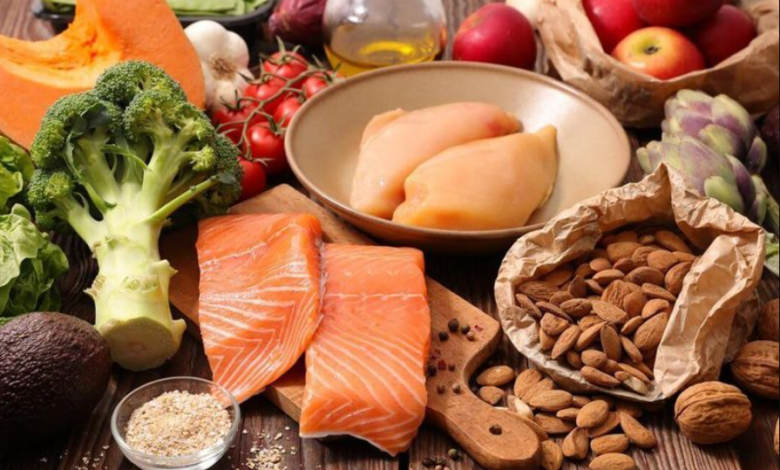The Changing Face of Modern Nutrition

Introduction to Health and Convenience in Modern Diets
In today’s fast-paced world, people are becoming increasingly conscious about their eating habits and overall health. The demand for nutritious and convenient food options has led to the rise of functional beverages that combine wellness with practicality. Among these, protein drinks have gained remarkable popularity for their ability to support a healthy lifestyle without compromising on taste or convenience. These beverages are now a staple for athletes, fitness lovers, and busy professionals seeking a quick nutritional boost.
Understanding the Concept of Functional Beverages
Functional beverages are designed to provide more than just hydration. They are formulated to deliver additional health benefits such as improved digestion, energy enhancement, and muscle recovery. In this category, protein drinks stand out for their nutrient density and versatility. They offer an efficient way to meet daily protein needs, especially for individuals who struggle to obtain enough protein from regular meals.
See also: The Essential Role of Intravenous Therapy in Modern Healthcare
Why Protein Matters in Daily Nutrition
Protein is one of the essential macronutrients required for maintaining good health. It supports muscle repair, tissue growth, enzyme function, and hormone production. A deficiency in protein can lead to fatigue, muscle loss, and weakened immunity. Consuming protein drinks ensures the body gets a steady supply of amino acids, helping to maintain strength, vitality, and overall well-being. These drinks serve as a convenient protein drinks solution for individuals with busy lifestyles or those following specific dietary regimens.
The Rise of Protein-Enriched Beverages
Over the last decade, there has been a noticeable shift in how people view food and fitness. With the growth of wellness culture, consumers are opting for products that align with their health goals. Protein drinks have evolved from being exclusive to gym-goers to becoming an everyday beverage choice. The variety available today—from dairy-based to plant-based options—caters to a wide range of consumers, including vegetarians and vegans.
Key Health Benefits of Including Them in Your Routine
Protein-based beverages offer multiple health advantages that make them a valuable addition to one’s diet:
- Supports Muscle Recovery: Ideal for post-workout nutrition, helping to rebuild muscle fibers.
- Promotes Satiety: Reduces hunger and supports healthy weight management.
- Boosts Energy Levels: Provides sustained energy throughout the day.
- Aids in Healthy Aging: Helps preserve lean body mass as people age.
These benefits make protein drinks a practical choice for individuals of all age groups.
Exploring Different Types of Protein Sources
There are several protein sources used in the preparation of protein drinks, each offering unique properties:
- Whey Protein: A fast-digesting option suitable for quick recovery after workouts.
- Casein Protein: Slowly absorbed, providing long-term nourishment.
- Soy Protein: Plant-based and rich in amino acids, great for vegetarians.
- Pea and Rice Protein: Vegan-friendly and hypoallergenic, making them ideal for those with dairy intolerance.
Each type of protein offers specific advantages, allowing consumers to select based on their dietary preferences and fitness goals.
Market Growth and Consumer Awareness
The Food & Beverage industry has experienced a surge in the demand for health-oriented products. As consumers become more informed about the importance of nutrition, they are choosing protein drinks as an alternative to sugary or carbonated beverages. This growing awareness, combined with improved product availability and innovative marketing, has made protein-enriched beverages one of the fastest-growing categories in the functional drinks market.
Product Innovation and Technological Advancements
Innovation has been at the heart of the success of protein drinks. Modern brands are continuously improving product formulations to enhance taste, texture, and nutritional content. New technologies allow manufacturers to reduce sugar content while maintaining flavor. There is also a focus on introducing natural ingredients, sustainable packaging, and environmentally friendly production methods to meet consumer expectations.
Choosing the Right Product for Your Needs
Selecting the best protein beverage depends on personal health objectives. For those looking to gain muscle, a shake with higher protein concentration and minimal sugar is ideal. For general health, a balanced formulation with added vitamins, minerals, and fiber is beneficial. Checking the nutritional label helps ensure the product aligns with one’s dietary needs. Consumers should also be mindful of artificial additives and choose natural options whenever possible.
Addressing Myths About Protein Consumption
Despite their growing acceptance, there are still misconceptions about protein drinks. Some believe they are only necessary for athletes or bodybuilders, while others fear they may cause unwanted weight gain. The truth is that these beverages are suitable for anyone seeking to improve their nutrition. When consumed as part of a balanced diet, they support health without adverse effects. Moderation and proper timing are key to achieving the best results.
Sustainability and Ethical Responsibility
With global attention turning toward sustainability, the Food & Beverage industry is taking steps to minimize environmental impact. Many companies producing protein drinks now use recyclable materials and responsibly sourced ingredients. Plant-based protein options are particularly appealing to eco-conscious consumers because they reduce carbon footprint and promote ethical farming practices.
The Future of Protein-Based Beverages
The future of functional nutrition looks promising as innovation continues to redefine the market. The next generation of protein drinks will likely focus on personalized nutrition, where products are tailored to specific health needs, activity levels, and dietary restrictions. Additionally, advancements in biotechnology will allow the development of more efficient protein extraction methods, making these beverages even more accessible and affordable for consumers worldwide.
Conclusion
The increasing popularity of protein drinks reflects a broader cultural shift toward health and wellness. They represent the perfect balance between nutrition, convenience, and taste, making them a vital part of modern dietary habits. Whether used for muscle recovery, weight management, or overall vitality, these beverages provide a practical and efficient solution for maintaining a healthy lifestyle. As the industry continues to innovate and evolve, protein-based drinks will remain at the forefront of the global functional beverage movement.





